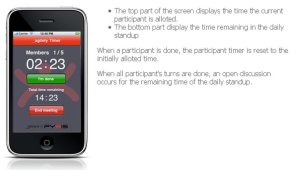
The problem with slow feedback loop
I recently re-read The Fifth Discipline: The Art & Practice of The Learning Organization. Peter Senge talks about the impact of feedback loops in individuals and organizations’ learning process. Feedback loops (aka retrospection) are also critical in Scrum and the Agile approach.
What does this have to do with my plant you ask? Simple. I was the victim of a slow feedback loop myself and it almost killed my wife’s beautiful Azalea.
A few weeks ago, I bought my wife a beautiful Azalea for our anniversary. It was in full bloom. It was simply beautiful!
In addition to looking very nice, the salesperson at the flower shop told me it was low maintenance. This is a key feature for us since we usually don’t do very well with house plants. I bought the plant and took it home.
Following the instructions, we would add water every few days and made sure the plant didn’t have too much direct sun light. One morning, we noticed some of the beautiful flowers were starting to dry out. Experience tells us that when something is dry, you add water – so we did. We increased the frequency of the watering ritual from once every 4-5 days to once every 2-3 days.
Much to our surprise, the situation didn’t improve. Actually, it was even worst, more flowers were drying out – so we thought, let’s add more water. We moved the plant next to the kitchen sink so we would remember to add water every morning when preparing coffee. A week passed by and the results got worst. In addition to dry flowers, the plant was loosing all its leaves. It started to look pretty bad.
While I was preparing coffee this morning, I went to add water to the plant only to discover that the plant was immersed in water. There was so much water that it covered the earth in the pot! S*%t! We are drowning the plant!!
Then it hit me. Because we weren’t getting any obvious feedback, we assumed what we were doing was good and we continued until it was almost too late. Had we had indications sooner that our actions weren’t the right ones, we could have changed them and possibly address the right issue.
This is exactly what we teach our customers and what Peter Senge was explaining. Without rapid feedback loop, it may take a while for people to realize they have been doing something wrong.







Recent Comments